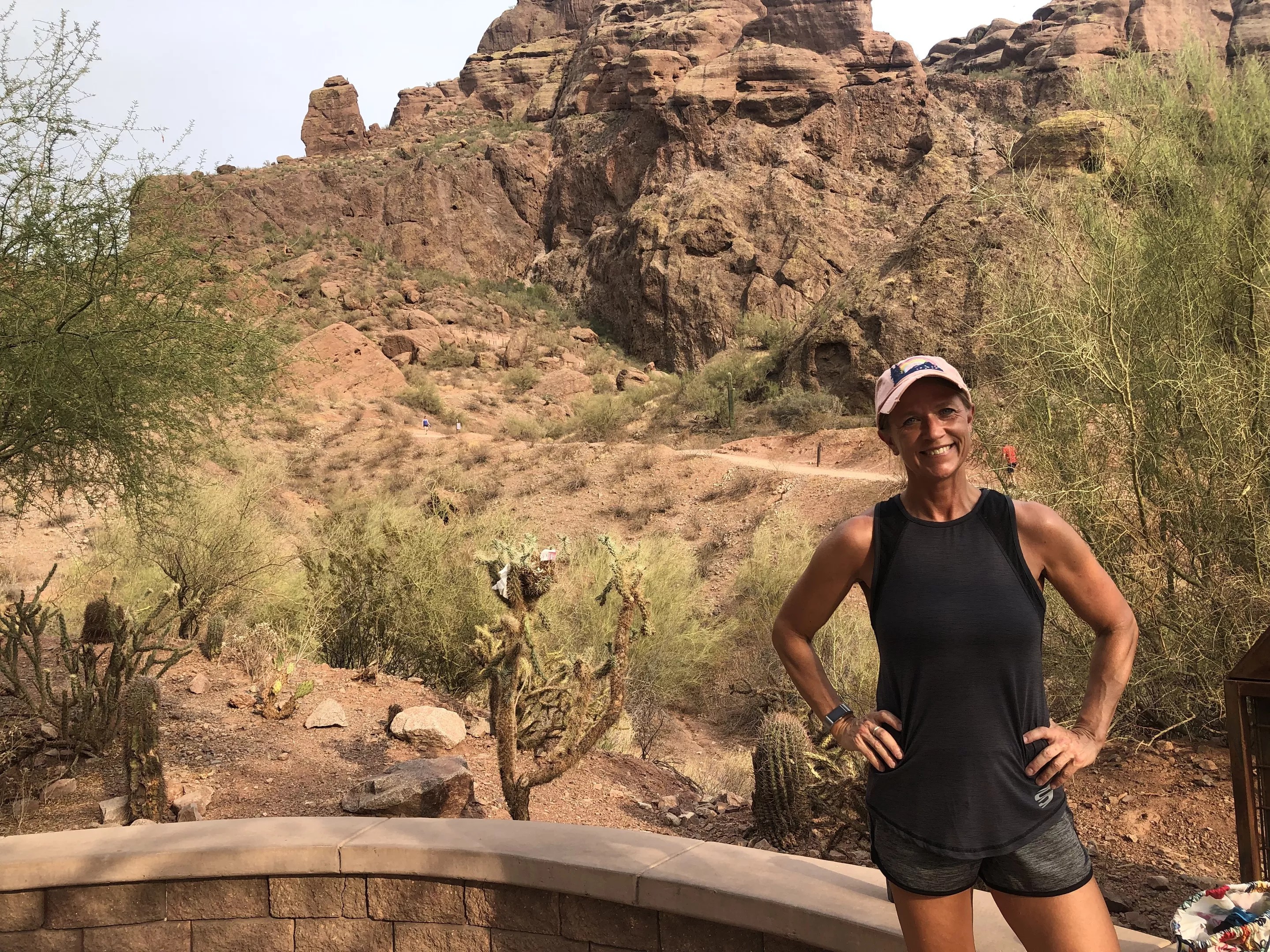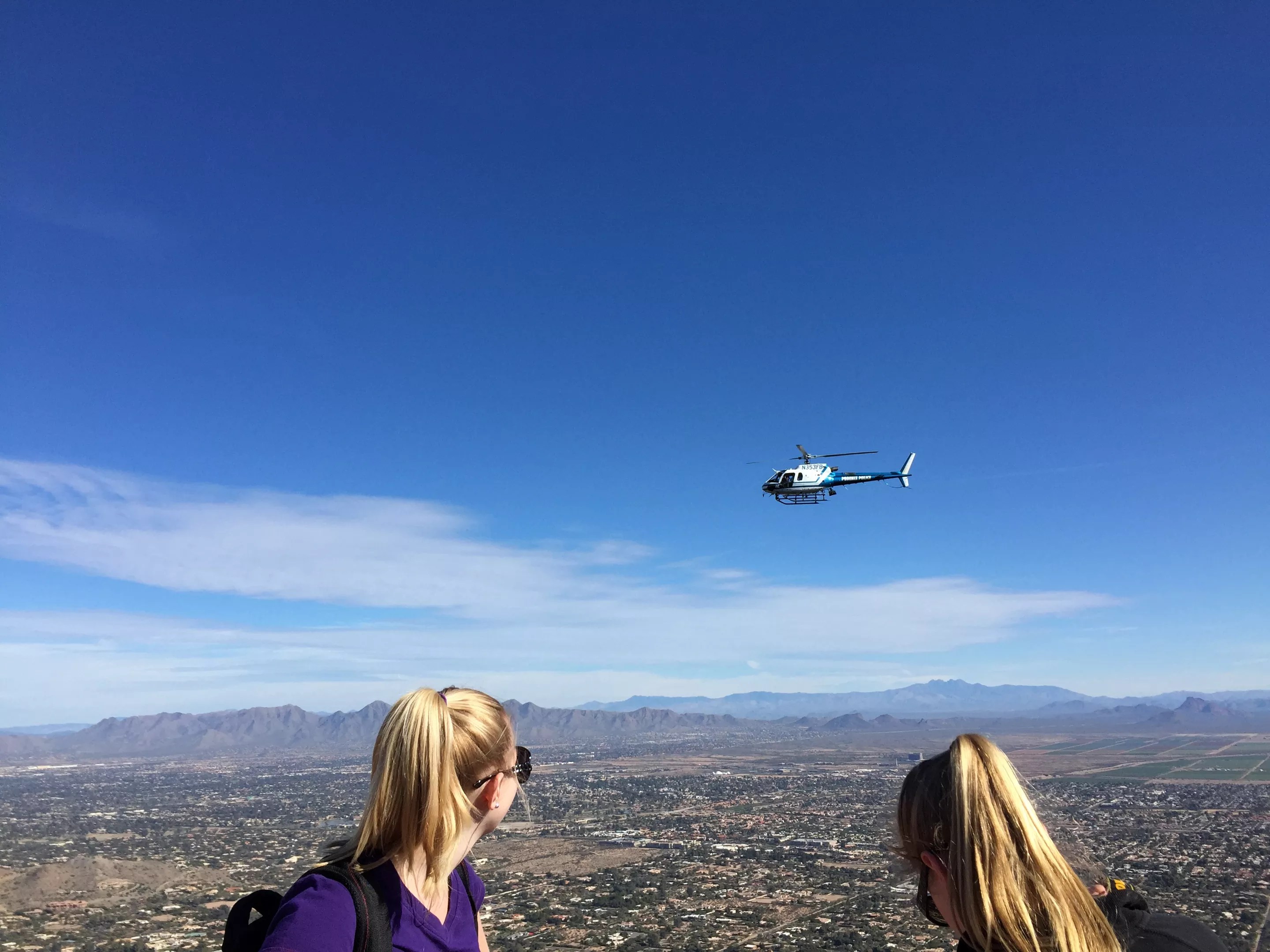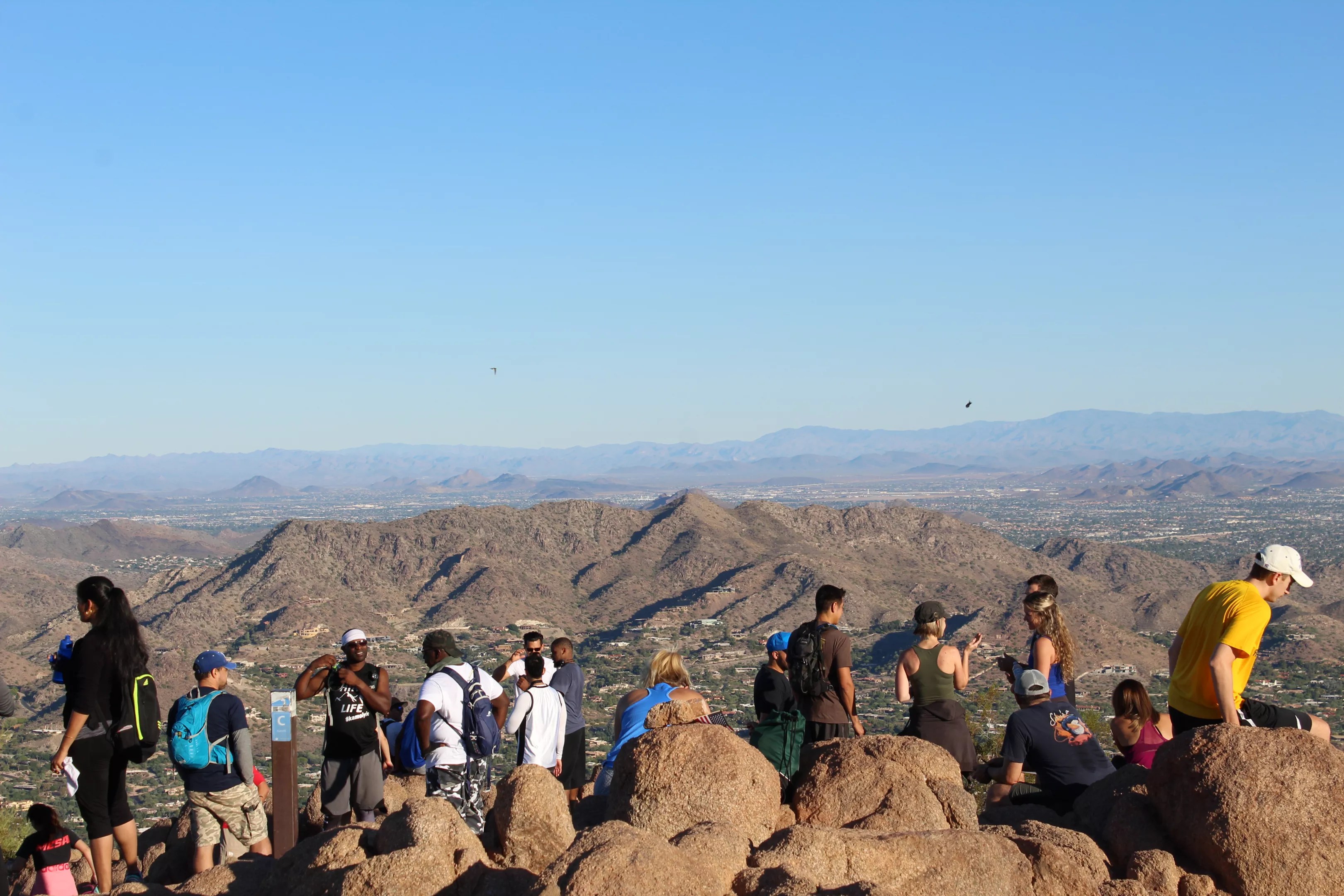
Ray Stern

Audio By Carbonatix
The United Phoenix Firefighters Association won approval on Tuesday for a pilot program to ban hiking on Camelback Mountain and Piestewa Peak on the hottest days.
The 4-2 vote in a special meeting of the city’s Parks and Recreation board came after the union complained that heat-related rescues were on the rise, putting firefighters at risk.
A July 7 letter sent to the board and signed by union president Steve Beuerlein and other union members (see below) referenced a challenging day last month when 12 firefighters had to be sent home, and two hospitalized with sudden kidney failure, following three back-to-back rescues on a 116-degree day.
Starting Friday and continuing until September 30, the city will close trails on the popular and rugged mountains from 11 a.m. to 5 p.m. if the National Weather Service has declared that an “Excessive Heat Watch” is in effect. Confusingly, the temperatures on those days varies depending on the average heat for that time of year, and may be called “heat watch” or “heat warning” days.
The closures would be in place even on relatively cooler days. Last year, a watch/warning was called in late April, when the temperature was 102. In total, NWS heat watches or warnings were in effect for 48 days in 2020.
“All trails associated with Piestewa Peak Trailhead,” plus Camelback’s Echo Canyon and Cholla trails are affected because they’re the worst offenders when it comes to difficult and complex rescues The parking lot gates will be closed during days with restrictions.

Mountain rescues are a common sight at Camelback mountain.
Ray Stern
Cholla Trail, which leads to the summit from Camelback’s east side, has been closed since March 2020 due to renovations and a dispute over the building of a new trailhead. It is not likely to open until at least next year.
Captain PJ Dean, a spokesperson for the union, said that firefighters felt they had “no other option” but to press for restrictions. One of the three rescues last month required a helicopter extraction of a woman “foaming at the mouth” after bee stings on Piestewa Peak, and the temperature was 115 – one degree away from the temperature at which the helicopter cannot safely be used, he said.
“The danger is real and it’s getting worse,” Dean said. “They close ski slopes when there’s an avalanche risk. They close the beaches during periods of high surf… [People] can simply go hiking at a different time of day.”
Although many question the common sense of people who brave the mountains on extremely hot days, hikers can be found on the trails even when temperatures climb near 120. Many of these hardcore hikers don’t like the ban.
“That sucks,” said Qui Nguyen, who hiked Echo Canyon Trail on Tuesday afternoon when the official Phoenix temperature was 106. He said he didn’t feel hot on the trail, though he could understand the concern when temperatures soar over 115. The firefighters should be in better shape, he said.
“They are trained to rescue people. They’re supposed to be getting ready to rescue people all of the time… why are you not ready?” he said, adding that he recently witnessed a rescue during which multiple firefighters were “huffing and puffing” up the trail.
“I think the fire department needs to get their personnel acclimated to the heat,” said Camelback hiker Jay Curtis. “The fire department is the one that has the problem. [They] should be able to it without needing medical attention.”
Local hiking enthusiasts often blame out-of-shape, ignorant, and unacclimated out-of-towners for the number of rescues, but no precise statistics on the hometowns of people rescued are available.
Cathy Herzog, a visitor from Buffalo, New York, said she opposed the restrictions. She had decided to hike Echo Canyon Trail on Tuesday despite the heat for a common reason: It was the time she had available on her short trip. But Herzog, who’s in good shape, wasn’t nonchalant about the adventure, which was her first time on the trail alone. She took plenty of water and asked a ranger what to expect when she arrived. She also turned back before she was even halfway up the steep trail.
“I lived,” she said happily. “I took lots of rests…You’ve just got to be smart.”
Rescues on Camelback and Piestewa trails have been an issue for decades, and they’ve risen with the popularity of hiking in the centrally situated mountain parks. Phoenix New Times has covered several tragic cases of hiker deaths due to heat. For a January 2014 article about the history of Camelback Mountain, a Phoenix Fire Department official told New Times it responded to about 50 hiker-rescue calls a year from 2009 to 2012, usually with “an element of heat to the call.”

A busy day on the summit of popular Camelback Mountain.
Ray Stern
Stats released this week by the Parks department shows that rescues nearly doubled since then on Camelback, which usually sees twice as many rescues as Piestewa. In 2018 and 2019, firefighters responded to 89 and 90 Camelback calls, respectively, and about half as many on Piestewa. Rescues fell to 55 on Camelback last year, but remained brisk on Piestewa, which had 40.
Sarah Porter, one of the two board members who voted against the trail closures, questioned why closures were needed now. Excessive heat is a yearly occurrence in the Valley, and the restriction is coming without hard data correlating rescues with temperature, she said.
About 20 percent of all the hiking that occurs in Phoenix happens at Camelback and Piestewa, and the mountains are “part of what makes Phoenix a special city,” she said.
When the parks board considered a similar ban in 2016, numerous hikers came out in opposition, she recalled. The board relented back then and only banned dogs from the trails. The public wasn’t given the same opportunity for in-person comments this time; the board held its meeting virtually.
“We all feel very grateful for what firefighters do,” Porter said, and they had a “good point” that rescues can be risky for everyone involved. But, she added, “It isn’t our job just to do the bidding of the firefighters …Taking access away … is to me one of the most serious things we can do.”
The city has extended summer hours for Piestewa Peak, North Mountain, and Pima Canyon in South Mountain, keeping parking lots open until 9 p.m. But that’s not the case at Camelback Mountain, where rangers will continue to enforce closures just after sunset.
City staff from the Fire and Parks departments are slated to present an “update and evaluation” of the program in October.
Below – the letter asking for trail closures by the United Phoenix Firefighters Association: